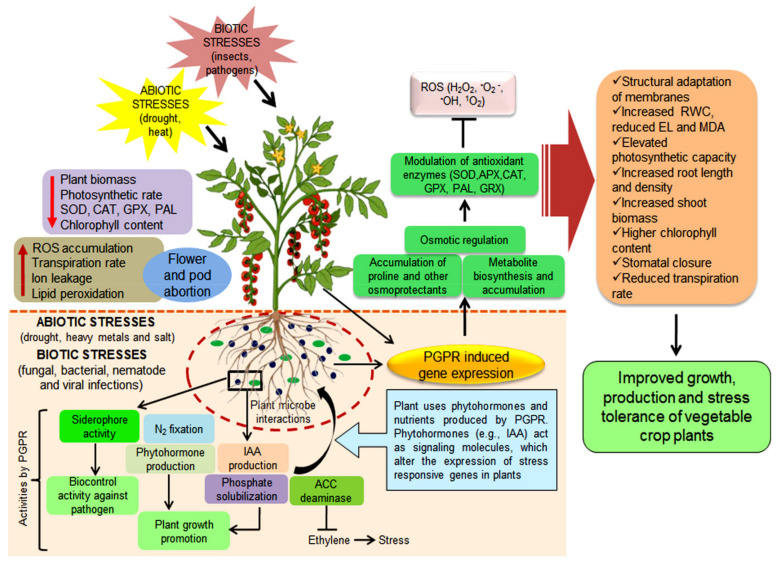Figure 3.
Schematic representation of plant-growth-promoting rhizobacteria (PGPR)-mediated growth promotion and stress tolerance in vegetable crops. The model shows stress-induced reductions in plant biomass; photosynthetic rate; SOD, CAT, GPX, and PAL activities; and chlorophyll content and increases in reactive oxygen species (ROS), flower and pod abortion, transpiration rate, ion leakage, and lipid peroxidation. Plants inoculated with PGPR experience growth-promoting attributes, such as phytohormone (IAA) production and nitrogen fixation, prevent pathogen infections through biocontrol activity, and improve stress tolerance through ACC deaminase activity. PGPR also induce stress-responsive gene expression, leading to the accumulation of several osmoprotectants and defensive compounds and detoxification of ROS in cells. Modulation of antioxidants prevents cell damage and maintains homeostasis. Cellular responses, such as increased relative water content and photosynthetic capacity and reduced ion leakage and transpiration rates, and morphological changes, such as increased root and shoot biomass and reduced flower and pod abortion, occur, which improves growth, yield, and stress tolerance in vegetable crops. IAA, indole-3-acetic acid; SOD, superoxide dismutase; CAT, catalase; GPX, guaiacol peroxidase; PAL, phenylalanine ammonia-lyase. Figure created with BioRender.com (https://app.biorender.com/biorender-templates (accessed on 10 October 2021).

